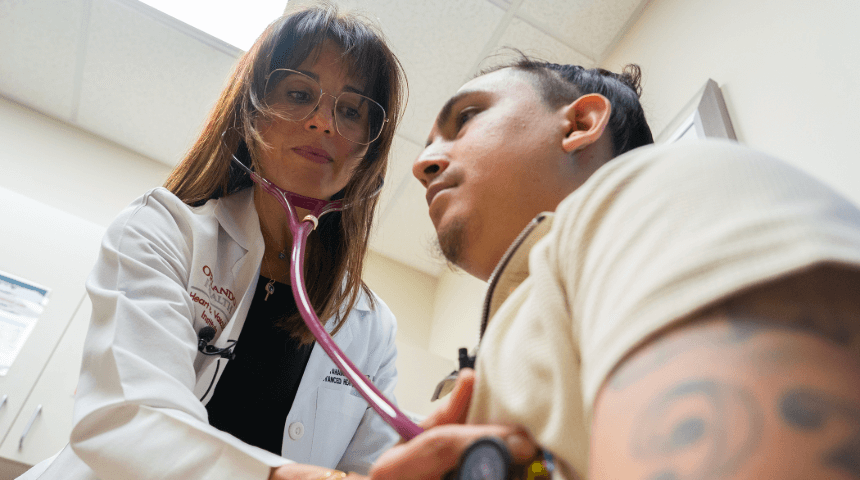On Valentine’s Day, we think about the heart in terms of love, but Valentine’s Day is also a good time to think about the heart in terms of health. Having a healthy heart is the best gift you can give yourself and those you love.
It’s not uncommon to take the wellbeing of the heart for granted. Unless you feel chest pain or notice an irregular beat, we tend to assume that all is functioning well on the inside. But cardiovascular disease is common, especially for Americans 60 years and older, and is the leading cause of death for both men and women. Cardiovascular disease can result in heart attacks, heart failure, abnormal heart rhythm, strokes and decreased blood flow to the legs.
Risk Factors for Heart Disease
Some people are more at-risk for developing heart disease than others. Age is a factor, with men over 45 years old and women over 55 years old being more susceptible. Other factors include having high blood pressure, high cholesterol, HDL less than 40 mg/dL, diabetes, chronic kidney disease, smoking, family history of heart disease, or being overweight or obese.
Many of these factors affect one another. For example, being obese increases your risk of developing diabetes, high blood pressure, high cholesterol, heart disease (including heart attacks), stroke, sleep apnea (a disorder in which you stop breathing for short periods while asleep), asthma and cancer.
High cholesterol raises your risk of heart attacks, strokes and other health problems, and high blood pressure is a major risk factor for heart attack, stroke, heart failure and kidney disease. Because this serious condition does not usually cause symptoms, many people with high blood pressure do not know they have it.
How to Prevent Heart Disease
Whether it’s Valentine’s Day or the other 364 days of the year, there are a variety of ways to take care of your heart and reduce the risk factors for developing cardiovascular disease.
- Eat a heart healthy diet. This means eating at least 2½ servings of vegetables each day. Vegetables can help prevent heart attacks and strokes. Choose dark green, red and orange vegetables; legumes (dry beans and peas); and starchy vegetables. Eat two servings of fresh, canned, frozen or dried fruit, or drink 100 percent fruit juice. Eat foods with fiber, since these foods can help prevent heart disease and strokes. Oatmeal and high fiber breads and cereals are good choices. Also limit red meat, sugar, salt and unhealthy fats.
- Stay active. Try to get your heart rate up with at least 30 minutes of moderate-intensity aerobic exercise at least five days a week. Can’t quite meet that goal? Any movement will be good for your heart, so keep moving and stay active.
- Keep your weight under control. Obesity increases the risk of heart attacks, heart failure and diabetes. Ask your doctor if you are overweight. If so, regular exercise and a healthy diet with portion control can help maintain a healthy weight.
- Reduce stress. Stress is a strong risk factor for heart disease, particularly in women. Try meditation or yoga to practice calmness.
- Stop smoking. If you smoke, you are four times more likely to die of heart disease (i.e. heart attack and stroke). Quitting smoking can lower your chances of getting or dying from heart disease, lung disease, kidney failure, infection or cancer. Additionally, second-hand smoke can cause heart disease in non-smokers.
- See your doctor regularly. Regular medical follow-up is one of the best ways to prevent cardiovascular disease. People who stop their cardiovascular medications are at higher risk for heart attacks, strokes, heart failure and reduced survival.
Make this Valentine’s Day the beginning of a heart-healthy journey for you and the ones you care about. Enjoy the day, but consider heart-healthy alternatives to a big box of chocolates or a calorie-rich dinner. When you take care of your heart, it will take care of you in return.
Choose to Take Control of Your Heart Health
You know your heart better than anyone else, but how well do you know the symptoms of a heart attack and how to reduce your risks?
Learn More





